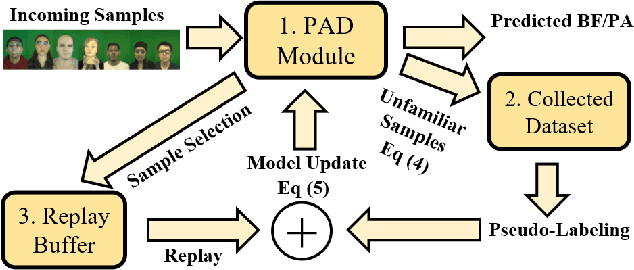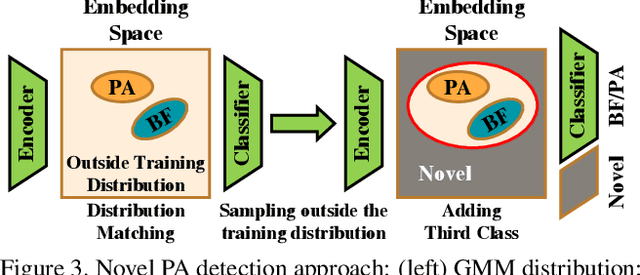Detection and Continual Learning of Novel Face Presentation Attacks
Paper and Code
Aug 27, 2021



Advances in deep learning, combined with availability of large datasets, have led to impressive improvements in face presentation attack detection research. However, state-of-the-art face antispoofing systems are still vulnerable to novel types of attacks that are never seen during training. Moreover, even if such attacks are correctly detected, these systems lack the ability to adapt to newly encountered attacks. The post-training ability of continually detecting new types of attacks and self-adaptation to identify these attack types, after the initial detection phase, is highly appealing. In this paper, we enable a deep neural network to detect anomalies in the observed input data points as potential new types of attacks by suppressing the confidence-level of the network outside the training samples' distribution. We then use experience replay to update the model to incorporate knowledge about new types of attacks without forgetting the past learned attack types. Experimental results are provided to demonstrate the effectiveness of the proposed method on two benchmark datasets as well as a newly introduced dataset which exhibits a large variety of attack types.
 Add to Chrome
Add to Chrome Add to Firefox
Add to Firefox Add to Edge
Add to Edge